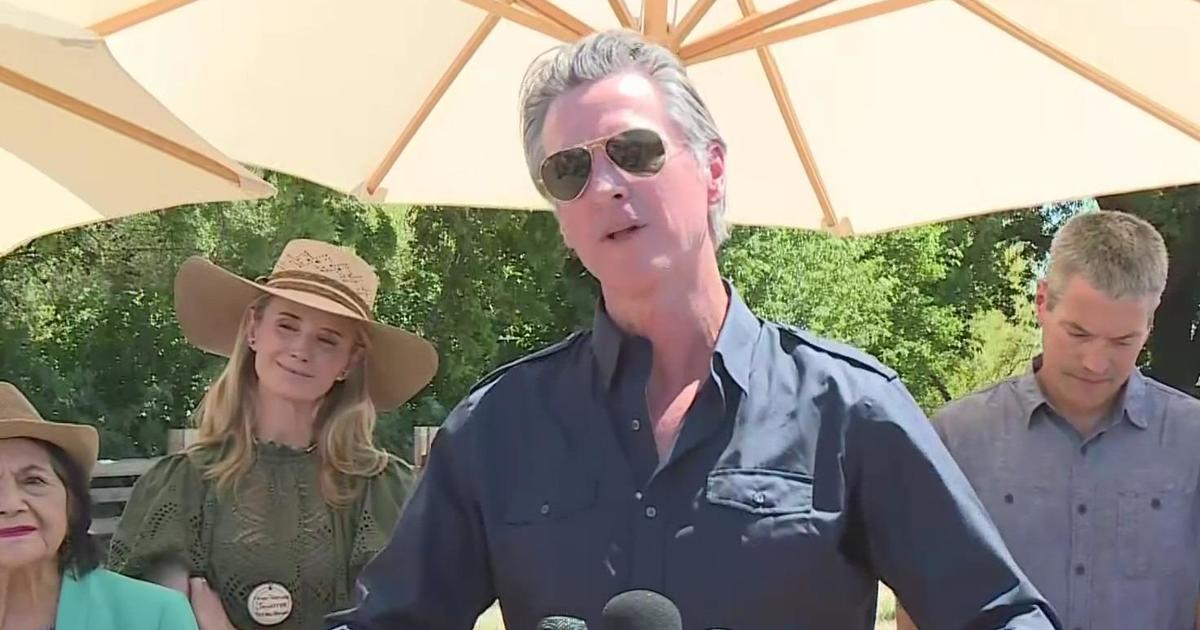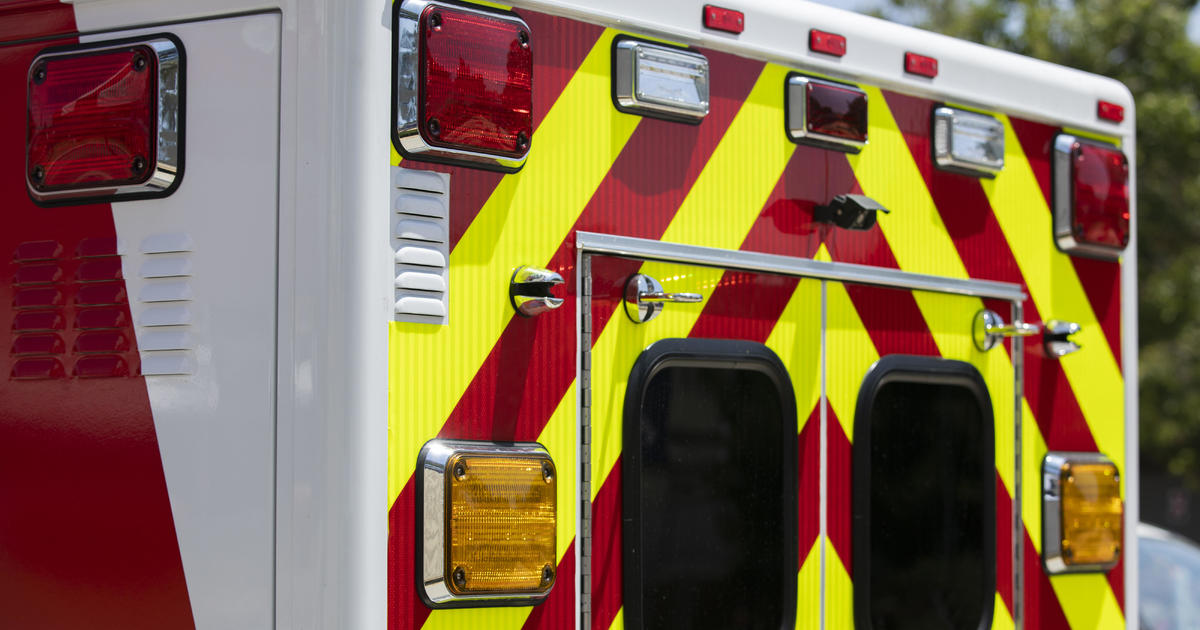Nearly 200K Remain Under Evacuation As Concerns Remain Over Oroville Dam Spillway
OROVILLE (CBS13/AP) - Nearly 200,000 people remained under evacuation orders Monday as California authorities try to fix erosion of the emergency spillway at the nation's tallest dam that could unleash uncontrolled flood waters if it fails.
About 150 miles northeast of San Francisco, Lake Oroville -- one of California's largest man-made lakes -- had water levels so high that an emergency spillway was used Saturday for the first time in almost 50 years.
LIST: Emergency Centers Currently Open For Evacuees
The evacuation was ordered Sunday afternoon after engineers spotted a hole on the concrete lip of the secondary spillway for the 770-foot-tall Oroville Dam and told authorities that it could fail within the hour.
"I'm just shocked," said Greg Levias, who was evacuating with his wife, Kaysi, two boys and a dog.
What they couldn't fit in their trunk they piled as high as they could in their downstairs Yuba City apartment and joined the line of traffic attempting to leave the city where they had moved just three weeks ago.
Panicked and angry residents sat in bumper-to-bumper traffic hours after the evacuation order was given.
Raj Gill was managing a Shell station where anxious motorists got gas and snacks while waiting for gridlocked traffic to clear. His boss told him to close the station and flee himself, but he stayed open to feed a steady line of customers.
"You can't even move," he said. "I'm trying to get out of here too. I'm worried about the flooding. I've seen the pictures - that's a lot of water."
A Red Cross spokeswoman said more than 500 people were at an evacuation center in Chico, California. The shelter had run out of blankets and cots, and a semi-tractor trailer with 1,000 more cots was stuck in the gridlock of traffic fleeing the potential flooding, said Red Cross shelter manager Pam Deditch.
A California Highway Patrol spokesman said they would have two planes out Monday to help with traffic control as well as search and rescue.
State Fire and Rescue Chief Kim Zagaris said at least 250 law enforcement officers from throughout the state are in the area or on their way to help with the evacuation.
Late Sunday, officials said the evacuation orders remained in place despite the fact water was no longer spilling over the eroded area.
"There is still a lot of unknowns," Butte County Sheriff Kory Honea said at a news conference. "We need to continue to lower the lake levels and we need to give the Department of Water Resources time to fully evaluate the situation so we can make the decision to whether or not it is safe to repopulate the area."
Honea announced Monday that repairs may need to be made before residents are allowed to go home. He stopped short of saying how long the fixes could take and didn't offer a timetable for lifting the evacuation order.
MORE: Helicopters To Drop In Boulders To Try And Stabilize Emergency Spillway
About 188,000 residents of Yuba, Sutter and Butte counties were ordered to evacuate.
Acting Director Department of Water Resources Bill Croyle said officials will be able to assess the damage to the emergency spillway now that the lake levels have been lowered.
The erosion at the head of the emergency spillway threatens to undermine the concrete weir and allow large, uncontrolled releases of water from Lake Oroville. Those potential flows could overwhelm the Feather River and other downstream waterways, channels and levees and flood towns in three counties.
Oroville Lake levels had decreased by Sunday night as they let water flow from its heavily damaged main spillway.
Croyle said the department will continue releasing as much as 100,000 cubic feet per second from the main spillway to try and reduce the dam's level by 50 feet ahead of storms forecast to reach the area Wednesday.
Department engineer and spokesman Kevin Dossey told the Sacramento Bee the emergency spillway was rated to handle 250,000 cubic feet per second, but it began to show weakness Sunday after flows peaked at 12,600 cubic feet per second.
Honea said there was a plan to plug the hole by using helicopters to drop rocks into the crevasse. But Croyle said that no repair work was done after officials looked at the flow and available resources.
Gov. Jerry Brown late Sunday issued an emergency order to fortify authorities' response to the emergency at the dam and help with evacuations.
Adjutant General David S. Baldwin of the California National Guard said at a news conference late Sunday that eight helicopters will be available Monday to assist with emergency spillway reconstruction.
The California National Guard put out a notification to all 23,000 soldiers and airmen to be ready to deploy if needed, he said. Baldwin says an alert for the entire California National Guard hadn't been issued since the 1992 riots.
Earlier Sunday, officials stressed the Oroville Dam itself was structurally sound.
Unexpected erosion chewed through the main spillway during heavy rain earlier this week, sending chunks of concrete flying and creating a 200-foot-long, 30-foot-deep hole that continues growing. Engineers don't know what caused the cave-in, but Chris Orrock, a Department of Water Resources spokesman, said it appears the dam's main spillway has stopped crumbling even though it's being used for water releases.
The lake is a central piece of California's government-run water delivery network, supplying water for agriculture in the Central Valley and residents and businesses in Southern California.
Copyright 2017 The Associated Press.



